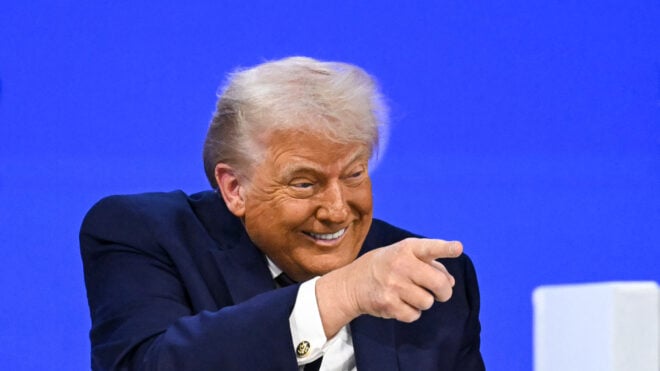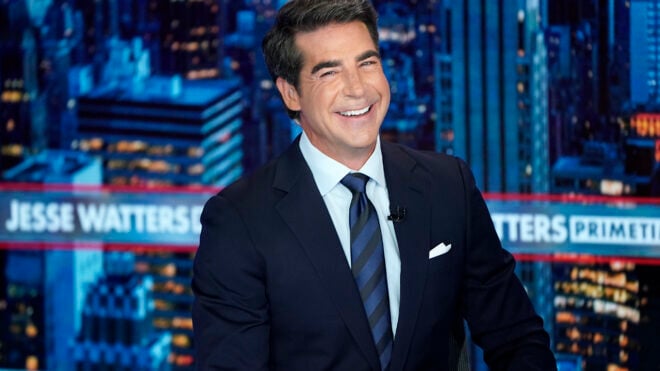George W. Bush's path to the presidency is one that's been the subject of many jokes throughout the years. Born into a political family, George seemed unlikely to follow in his father's footsteps in his younger years. He was known for partying and had an affinity for alcohol. His decision to walk away from that lifestyle is what changed the course of his life, those close to him believe.
George's life is the subject of a new two-part episode of the PBS documentary series American Experience. The documentary spends a significant amount of the first episode emphasizing how significant the decision to quit drinking was in George's life.
The story of George's decision to stop after waking up hungover after celebrating his 40th birthday has been told before. Recently, daughter Jenna Bush Hager discussed how it influenced her own drinking habits and, later, her parenting. This time, the story comes with the recollections of several of the people who saw it firsthand.
On a new two-part episode of the PBS documentary series American Experience, the life and presidency of George W. Bush are explored. As those closest to him point out, it seemed like an unlikely path for a man who was known as a partyer. That's also what makes it so interesting.
Part of the documentary focuses on what those closest to George thought about his decision to quit drinking after his 40th birthday.
"He woke up hungover," childhood friend Charlie Younger remembered in the documentary's first episode, which aired Monday night on PBS. "He'd overdone it the night before and he didn't feel good."
"I think Laura [Bush] told him he could've behaved better," Charlie recalled of that time.
"He just said, 'I don't need this in my life. It's robbing me of my energy. It's taking too much of my time.'"
After that, he quit cold turkey. Fifteen years later, he'd become the 43rd president of the United States.
"I quit because at times I thought I like to drink too much," George explained in an old interview used in the documentary.
"Somebody said, 'Can you think of any day you hadn't had a beer?' And I couldn't."
George's problematic drinking had begun during his time as a Texas bachelor. "He was kind of drifting," Charlie recalled. "I don't think he had focus on where he was heading."
Charlie wasn't the only one who felt that way, either. Other friends didn't mince words about George's behavior during that time.
"He'd drink too much and he could really be obnoxious when he drank too much," said lifelong friend Robert McCleskey. "For lack of a better word, he could be a real [expletive] when he drank."
Journalist Wayne Slater remembers George as a "good-time Charlie" who was a "wonderfully engaging friend and fraternity brother that you've met a thousand times."
"What he wasn't, at least to my mind, was someone who would emerge as governor of Texas or president of the United States," Wayne said.
The worry for George reached its worst around his 40th birthday. Friends and family worried he'd never find his way.
"He drank too much and he had very little direction," former speechwriter Michael Gerson explained.
Exploration of spirituality and religion in the summer of 1985 also deeply impacted George. In a 1999 Washington Post interview, he credited a family friend, Reverend Billy Graham, for that. He says that the reverend "planted a seed in my heart and I began to change."
George began attending weekly Bible study sessions. He took that time seriously, searching for meaning in what he learned.
"He's looking for something, right? He's seeking out direction, meaning, understanding," New York Times political reporter Peter Baker said. "Religion begins to give him that definition and that path forward."
At this time, Charlie saw George transform "from a church-goer to a Christ-follower."
"[He] wanted to emulate the tenants and teachings of Jesus Christ," Charlie recalled. "He made a definite transformation there."
With faith as his support system, he quit drinking cold turkey after a wild 40th birthday weekend. "He beat drinking and he did it just overnight," director Barak Goodman told NPR.
"I mean, he really displayed a level of discipline and decisiveness that people don't often attribute to George W. Bush but was very much part of his character."
"He was able to marshal this, you know, quite a bit of inner strength," Barak added. "And this was an example. He just — he stopped cold."
He would need that inner strength to get him through the many difficult events of his presidency, beginning with the rough determination of the election and continuing with the September 11 attacks.
"The nation rallied because we were attacked but I think the nation also had question marks about its nine-month-long president at that point," said Ari Fleischer, who served as Bush's press secretary from 2001 to 2003.
He also added that the country was still trying to determine two things about George at that time: "Who are you?" and "What will you do?"
Those questions will be further explored in the second episode about George. It will explore other tests Geroge experienced during his presidency, including the war in Iraq, Hurricane Katrina, and the financial crisis.
Part two of the George W. Bush American Experience documentary airs May 5 on PBS at 9 p.m. ET.




